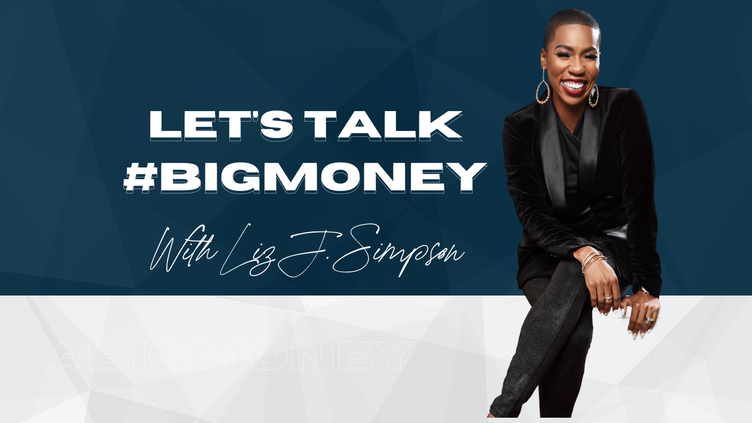
I am an avid champion for small business owners. I love being an entrepreneur and the opportunities that this path has created for my life.
However, I am the first to admit that entrepreneurship is one of the most challenging, personal development journeys of my life.
I was recently in Salt Lake City, Utah with two members of our team (Kelley, Director of Operations, and Cheryl Park, Coach & Trainer) when a question was posed to us.
The question:
What are the best practices or philosophies that will help someone achieve their entrepreneurial goals?
We had an interesting conversation and instantly came up with 7 best practices.
Read on to find out what they are!

1. You Don’t Build A Business, A Business Builds You
First and foremost, I believe that starting a business requires a mindset reset. There will be many challenges. Some days you won’t hit the mark. On other days, you’ll achieve heights beyond your comprehension.
Our Director of Operations, Kelly Wasson offers these questions to ask yourself as you embrace the peaks and valleys:
- How can you grow from each experience?
- What support do you need to help you succeed as an entrepreneur?
2. Everything in business is experimental.
Even if you have a supposed “blueprint” for success that you’re following as a business leader- once you put that blueprint into practice for your specific business, it is now an experiment. You won’t know if something works until you try it. It’s important to surrender to the process: Execute. Observe. Track & Document. Refine. Execute Again.
3. Build a plan
It’s concerning how many small business owners don’t set revenue goals or track their numbers. Our company hosts strategic planning workshops and we often hear from small business owners that our workshop was the first time that they built KPIs, milestones and goals around sales.
You must set clear benchmarks and track metrics so that you know what’s working and what needs to change.
“Plan tight. Hang loose,” as Kelly likes to say. Things may not go exactly as planned, but it’s important to have a roadmap so you know where you’re going.
4. Business comes in seasons.
It’s essential to give yourself grace around the season you are in.
“Don’t compare your chapter 1 to someone else’s chapter 20.”
Some of our clients inside of our small business Accelerator (The #BigMoney Movement) are taking big steps and making great strides but haven’t hit their goals yet. Each person is in their unique season. It’s not uncommon for a client to feel disheartened by their business’s lack of momentum one week and two weeks later, find themselves celebrating major traction!
Cheryl Parks, one of our team’s coaches and trainer, shared: “When I first launched, I was in a class that was like drinking from a fire hose. I had to recognize I wasn’t yet in the season for much of the content.”
Know the race you are running, and focus on your lane, even as you gain inspiration from the other runners.
And be sure that when you do achieve your goals, you stop to celebrate!
5. If you live by the sword, you will die by the sword.
If you rely on accolades — the likes on social media, the follower count, the praise — you will lose all motivation when you don’t receive it. Criticism will have you closing your doors.
Instead, focus on your own goals, metrics, strengths, and passions to keep you moving forward.
Introspection is vital for a small business owner. Be clear on your why. Revisit your vision daily. Look inward for drive, inspiration and direction.
Some days people will celebrate you. Some days people will criticize you.
You can be profitable and fulfilled on both of those days- regardless of the words of others.
6. Focus on Sales

Focus on income-producing activities — those things that drive revenue growth.
It may sound obvious, but there are a lot of distractions for business owners. Too often I hear from our clients inside of The #BigMoney Movement, “I was getting ready to get ready,” which equates to things like losing weight to have a photoshoot or waiting for a new logo to get business cards.
Instead, focus on the fastest path to cash.
I abide by what Peter Drucker said: “The purpose of business is to create a customer.”
Too often we build businesses and have the gall to vilify sales.
You mean- you’re avoiding and disdaining the very thing that sustains a business?
Creating revenue is a vehicle to solving any problem your business might encounter.
If you don’t know how to run ads, revenue creates an opportunity to hire a team so they can run your ads.
If you feel you have gaps in your leadership, generate the funds to hire leadership or invest in leadership development.
I often revisit Greg McKeown’s phrase that he cites in his book, Essentialism. It’s the phrase: “the disciplined pursuit of less”.
I ask myself:
“What are the minimal key efforts that I can focus on to achieve my business goals?”
Without fail, sales are always at the top.
7. Know how to stay focused on sales
Once you’ve prioritized sales, you need to set your sales goal. Then, reverse engineer its attainment to create a sales strategy.
For me, I map out my sales strategy in 90-day sprints.
90 days is long enough to develop a habit and see results, yet short enough that I don’t lose sight of my vision.
I don’t get as easily distracted in 90 days versus 6-month or 12-month stretches.
Small businesses are often volatile- quickly changing and evolving.
I find that setting a strategy too far out can be counter-productive.
I’m often having to refine and tweak plans every 90 days.
Here is my process:
- Focus on a 90-day period
- Identify your sales goal for that period
- Review the calendar for that 90-day period. Map out a sales strategy. Create specific campaigns & milestones.
Those are our 7 best practices for achieving entrepreneurship goals. What do you think we left out?
If you’re a woman consultant or expert interested in our Accelerator which empowers you to grow your business with corporate clients, learn more and apply at thebigmoneymovement.com!
About The Author: Liz J. Simpson

Liz J. Simpson has been recognized by LinkedIn as a Top 15 Sales Influencer. She is a speaker, sales strategist and trainer.
She has been featured in NBC, CBS, SXSW, 40 under 40 and as a Hubspot INBOUND Fellow. She’s been recognized as a Demand Gen Thought Leader award winner as well as a SalesHacker Top Sales Leader and Female Speaker.
As founder of the sales consultancy, Stimulyst, her team specializes in empowering organizations to accelerate growth through personal branding, strategic relationship-building, and consultative new business development.
Liz is also the founder of The #BigMoney Movement, a global movement empowering thousands of women entrepreneurs across the globe to take up space, shatter gender disparities and close 6-figure corporate deals.
When she’s not out training professionals to become “fluent in #bigmoney talk”, you’ll find her at home with her husband and three children, aged 5, 16 and 17.
Share

